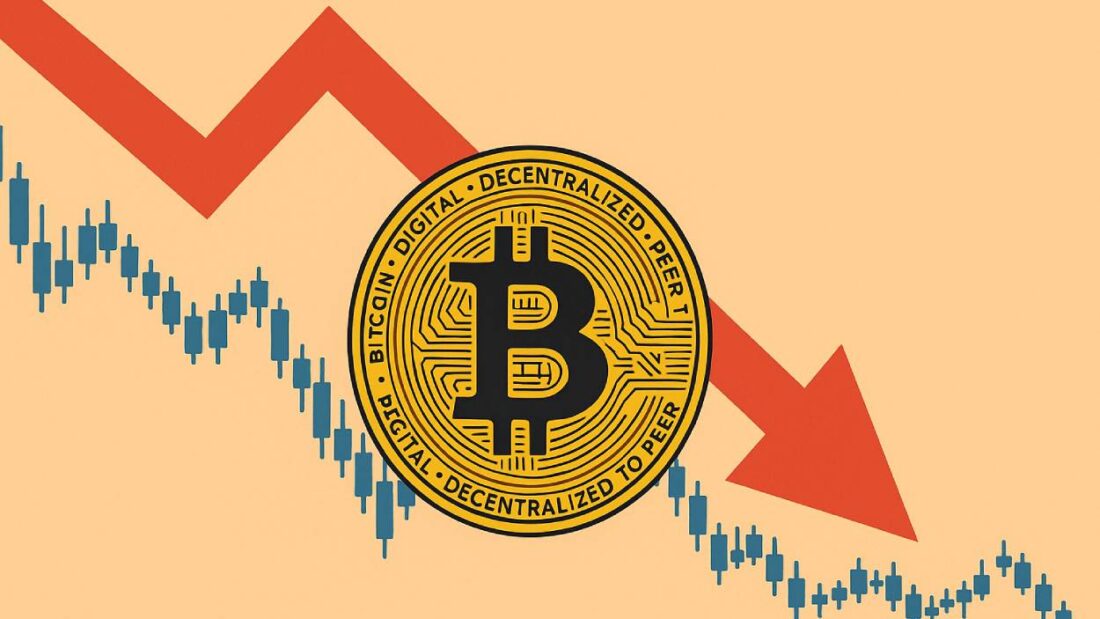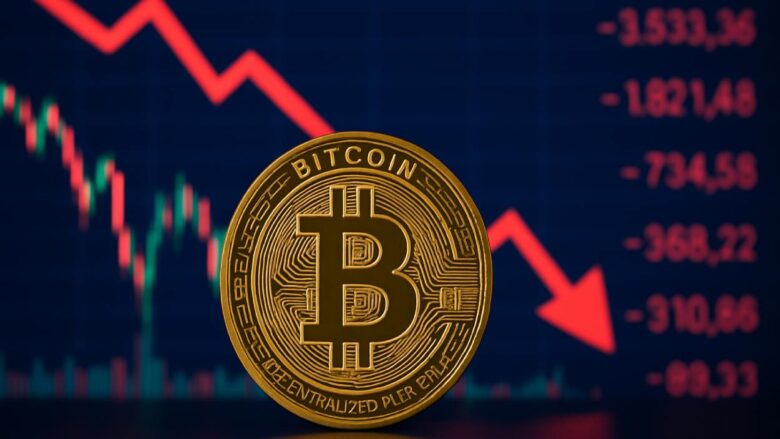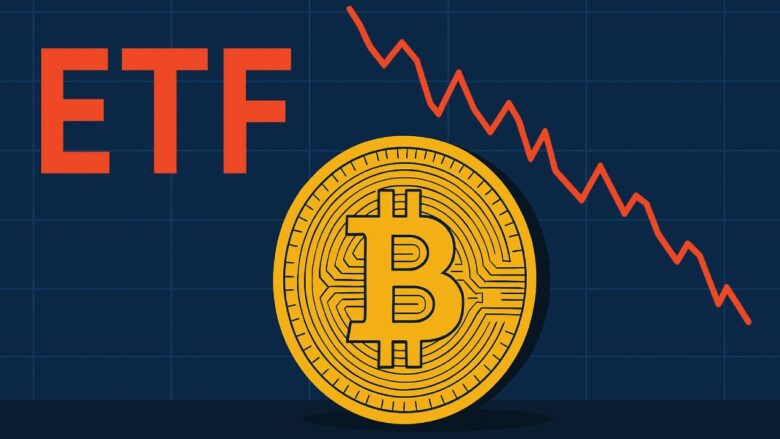Bitcoin has fallen sharply below $119,000 following renewed trade tensions between the U.S. and China triggered by President Trump’s latest tariff threat.
Key Takeaways
- Bitcoin dropped from over $122,500 to below $119,000 after President Trump’s comments about raising tariffs on Chinese imports.
- More than $420 million in long crypto positions were liquidated within an hour, totaling nearly $600 million for the day.
- Trump accused China of monopolizing rare-earth elements and signaled a breakdown in trade talks with President Xi Jinping.
- Crypto stocks and altcoins also saw declines, with major tokens like Ethereum, Solana, and Dogecoin following Bitcoin’s downtrend.
What Happened?
Bitcoin lost over 2 percent in a single day, dropping from recent highs above $122,000 to as low as $118,000. The decline was triggered by President Donald Trump’s statements accusing China of hostility and threatening a “massive increase” in tariffs. His comments came in response to China tightening export controls on rare-earth metals, a critical supply for global tech and defense industries.
NEW: 🇺🇸 President Trump posts long China rant, threatening to raise tariffs while saying there is “no reason” to meet with President Xi.
— Bitcoin Archive (@BTC_Archive) October 10, 2025
Markets not liking this one 😬 pic.twitter.com/VOE167bwyZ
Bitcoin Reacts to Trade War Fears
The latest fall in Bitcoin’s price follows days of heightened volatility. After reaching a new all-time high above $126,000 earlier this month, Bitcoin had been holding steady around $121,000 before the sudden drop.

President Trump, posting on Truth Social, said China was becoming “very hostile” and accused them of holding the world “captive” through a rare-earth monopoly. He indicated that a planned meeting with President Xi Jinping during the upcoming APEC summit in South Korea might be canceled.
These remarks unsettled investors across markets. Bitcoin, often seen as a speculative asset, reacted instantly, with traders quickly pulling out.
- Bitcoin dropped over $4,000 in under 24 hours
- Altcoins including Ethereum, Solana, XRP, and Dogecoin lost between 3 percent and 6 percent
- Circle, Robinhood, Coinbase, and MicroStrategy stocks declined up to 6 percent intraday
Wave of Liquidations Hits Crypto Market
The impact was not limited to prices. The crypto market saw a massive wave of liquidations, with CoinGlass reporting over $420 million in long positions erased in just one hour. Daily total liquidations reached nearly $600 million, affecting more than 155,000 traders.
Bitcoin and Ethereum bore the brunt, with $73 million and $175 million wiped out respectively. This sudden unwinding added to selling pressure, accelerating the decline across the market.
Geopolitical Risks Rattle Investor Confidence
Trump’s announcement comes amid already fragile trade relations between the two global superpowers. Earlier this year, talks between the U.S. and China in Geneva had shown signs of progress, especially around rare-earth exports. But with China introducing new restrictions and the U.S. responding aggressively, hopes for diplomatic resolution have dimmed.
Crypto traders are especially sensitive to such macroeconomic threats. The digital asset market is often the first to react to geopolitical instability, due to its 24/7 operation and high volatility.
Still, not all investor activity is bearish. Despite the sharp drop, U.S.-listed Bitcoin ETFs reportedly saw record inflows, suggesting that institutional players may be buying the dip even as retail investors flee.
CoinLaw’s Takeaway
I’ve seen how quickly sentiment can flip in the crypto world, and this is another textbook example. In my experience, Bitcoin doesn’t just react to interest rates or tech trends, it also responds to geopolitical shocks. Trump’s aggressive stance toward China jolted the entire crypto market, triggering both panic selling and mass liquidations. But if you look closely, big players are quietly accumulating during these dips. That tells me this isn’t the end of the bull cycle. It’s a warning shot that volatility is far from over.


































































